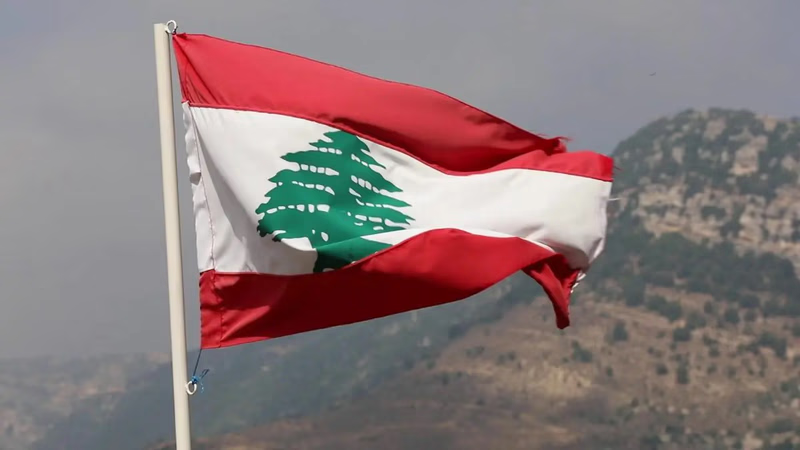
Lebanon"s vibrant trade landscape: B2B marketplace & supply chain solutions. "
The Lebanese economy is characterized by a combination of sectors, including services, industry, and agriculture. The services sector has traditionally been the largest contributor to the economy, accounting for a significant portion of GDP. Key service industries include banking and finance, tourism, real estate, and telecommunications. The industrial sector encompasses manufacturing, construction, and energy, while agriculture contributes a smaller but still significant share to the economy.
Lebanon has been known as a regional financial hub with a strong banking sector. Historically, Lebanese banks attracted deposits from both domestic and international investors due to their reputation for stability and confidentiality. The financial sector played a vital role in the economy, contributing to job creation and providing financing for businesses. However, the sector has faced significant challenges in recent years, including a banking crisis and capital controls that have hindered economic activity.
Lebanon has a rich cultural heritage, scenic landscapes, and a vibrant nightlife, making it a popular tourist destination in the region. The tourism industry has traditionally played a crucial role in the economy, attracting visitors from around the world. However, political instability and security concerns have negatively impacted the tourism sector in recent years. Despite the lack of industrial raw materials and pure dependence on the Arab countries, Lebanon is the leading Arab country in terms of fashion and clothing, cosmetics, food, construction materials, pharmaceutical-medical industries due to the free and duty-free market. Is one of the exporters of dairy and clothing to Europe?
Historically, remittances from Lebanese expatriates have been a significant source of income for the country. Many Lebanese citizens work abroad and send money back to their families, providing a vital source of foreign currency and supporting domestic consumption. However, the economic challenges and political instability have affected remittance flows in recent years.
The economic situation in Lebanon is divided into several parts. The least important economic sector in this country belongs to agriculture. Lebanon's industry is mainly active in the cosmetics, food, pharmaceutical, and medical sectors. It exports dairy products and clothing to Europe. Although Lebanon is in a good position in terms of agricultural activities (in terms of water supply and soil fertility), it does not have a large agricultural sector. The agricultural sector is Lebanon's least important economy, accounting for only 12 percent of the workforce, and accounts for only 10 percent of GDP, putting it at the bottom of the list. Of course, Lebanon intends to transform the agricultural industry by 2020 attract billions of dollars in agricultural income.
Lebanon's 1975-90 Civil War severely damaged Lebanon's economic infrastructure, halved domestic production, and shaken Lebanon's position as a transit center for goods and banking in the Middle East. Peace enabled the central government to take control of Beirut, collect taxes, and gain access to government and border facilities. The well-established banking system, small and large factories, household money, banking services, industrial and agricultural exports, and international aid as the main sources of foreign exchange have contributed to economic recovery.
Before the 2006 Lebanese-Israeli war, the Lebanese economy grew rapidly, with bank assets reaching more than $ 70 billion. Although the tourism sector declined by 10 percent in 2005, more than 1.2 million tourists visited Lebanon. Market investment peaked at more than $ 7 billion at the end of January 2006. The start of the war in August-June 2006 caused severe damage to Lebanon's shaky economy, especially the tourism sector. According to an initial report published by the Ministry of Finance on August 30, 2006, a major economic downturn will result from the war.
Beirut International Airport reopened in September 2006, and efforts to improve Lebanon's economy have accelerated. Major donors to Lebanon's reconstruction include Saudi Arabia ($ 1.5 billion), the European Union ($ 1 billion), and some other Persian Gulf states with more than $ 800 million. Its main ports are Beirut, Tripoli, and Tire, which are located on the shores of the Mediterranean Sea. Lebanon is called the bride of the Middle East, and Beirut is one of the top cities in the Arab world in terms of quality of life. The official languages in this country are Arabic, English, and French. The most important free trade zones of this country are the port of Beirut, Tripoli, or Trapani.
Lebanon has faced a severe economic crisis since 2019, characterized by a combination of factors, including a banking sector crisis, high public debt, corruption, political instability, and the impact of regional conflicts. The crisis has led to a sharp depreciation of the Lebanese currency (the Lebanese pound), soaring inflation, high unemployment rates, and a decline in living standards. The country has struggled with shortages of basic goods, including fuel, electricity, and medication. The Lebanese government has sought international assistance to address the economic crisis. The country is engaged in negotiations with international financial institutions and donors to unlock funds and implement economic reforms. These reforms aim to address structural issues, improve governance, enhance transparency, and restore confidence in the economy.
-
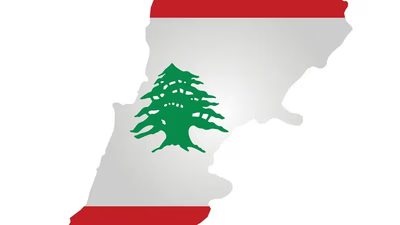
Lebanon"s agricultural sector is diverse, producing olives, citrus fruits, apples, grapes, vegetables, dairy products, and poultry. The country is particularly noted for its high-quality olive oil and wine exports. A robust food processing industry enhances the value of these agricultural products through the production of canned goods and traditional items like hummus and baklava. Additionally, Lebanon"s textile and garment industry plays a significant role in its economy, with Beirut recognized as a fashion hub. The jewelry sector thrives on skilled artisans creating intricate designs in gold and silver. Major industrial outputs include textiles, chemicals, wood products, and oil refining. Lebanon also exports precious stones and fertilizers while importing mineral fuels and machinery. In 2018, Lebanon"s trade balance showed a deficit with exports at $3.
8 billion against imports of $20. 3 billion. The country maintains trade relations with various nations including Saudi Arabia and China for imports and exports respectively. The pharmaceutical industry is well-established in Lebanon, producing generic drugs for both local consumption and export. The services sector significantly contributes to the economy through banking, tourism, telecommunications, and IT services. "
-
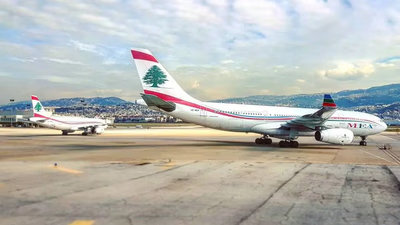
Lebanon"s transport infrastructure features a comprehensive road network linking major cities, including highways like Beirut-Damascus and Beirut-Tripoli. While the road system facilitates connectivity, it faces challenges such as traffic congestion, particularly in urban areas. The country also utilizes its Mediterranean coastline for ferry services between coastal cities, enhancing intercity travel options. Car rentals are widely available, allowing flexibility for both residents and visitors. Public transportation includes buses and minibusses, which offer affordable commuting but can be overcrowded during peak hours. Taxis and ride-hailing services like Uber provide additional transport choices, although traffic congestion remains a significant issue. Travelers should be cautious of road conditions and local driving practices, especially on narrow mountain roads. Beirut-Rafic Hariri International Airport serves as the primary air travel hub, connecting Lebanon to global destinations. "
-

The Lebanese economy is diverse, with significant contributions from services, industry, and agriculture. The services sector, particularly banking and finance, has historically been the largest contributor to GDP. Lebanon"s banking system has attracted both domestic and international deposits due to its stability. However, recent challenges such as a banking crisis and capital controls have hindered economic activity. The tourism sector has also faced setbacks due to political instability and security concerns, despite Lebanon"s appeal as a tourist destination. Agriculture remains the least significant sector, contributing only 10% of GDP and employing 12% of the workforce. Despite its agricultural potential, Lebanon relies heavily on imports from Arab countries. The country is known for its fashion, cosmetics, food products, and pharmaceuticals, exporting dairy and clothing primarily to Europe.
Remittances from expatriates have been crucial for domestic consumption but have declined due to economic challenges. The civil war (1975-90) severely damaged infrastructure but post-war recovery efforts saw growth in various sectors until the 2006 conflict disrupted progress again. Since 2019, Lebanon has faced a severe economic crisis marked by currency depreciation, high inflation, unemployment, and shortages of essential goods. The government is seeking international assistance to implement reforms aimed at restoring economic stability.
-
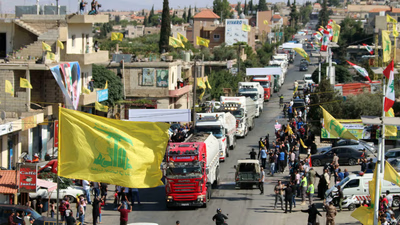
Lebanon"s transportation infrastructure is characterized by an extensive road network connecting major cities, with the Beirut-Damascus Highway being the most significant. However, issues such as poor road conditions and traffic congestion persist. Public transportation relies heavily on buses and minibuses, but service quality varies, leading to overcrowding during peak hours. The Port of Beirut is the largest maritime gateway for trade, alongside other ports like Tripoli and Saida. Currently, Lebanon lacks an operational railway system, although plans for revival exist to alleviate traffic issues. Trade routes between Iran and Lebanon are primarily maritime due to unreliable land routes through Iraq and Jordan. The Lebanese customs regime has been simplified in recent years, with low tariffs on imports but a complex licensing system for exports and imports. Certain goods are prohibited from entering Lebanon, including drugs and older vehicles.
Agricultural imports require specific licenses based on seasonal needs or regulations from various ministries. Taxis are widely available in urban areas for shared or private rides, while Beirut-Rafic Hariri International Airport serves as the main air travel hub despite reduced flight options due to economic challenges. "
-
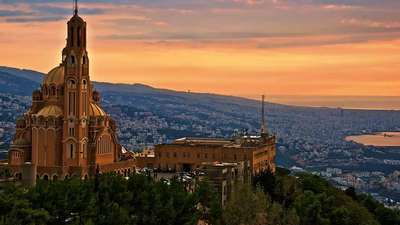
Lebanon"s geography, characterized by its mountainous terrain and Mediterranean coastline, has significantly influenced its political structure and social dynamics. The natural barriers created by the mountains have led to the isolation of various communities, fostering distinct religious and ethnic identities. This has resulted in a confessional political system that allocates power among different religious groups, including Maronite Christians, Sunnis, and Shiites. The sectarian quota system ensures representation in government based on religious affiliation, with a parliament divided equally between Christians and Muslims. Lebanon"s strategic location in the Middle East has made it susceptible to external influences and conflicts, particularly from neighboring Syria and Israel. The rise of influential political entities like Hezbollah reflects the complex interplay between geography and politics. Economic activities are deeply intertwined with this political landscape; Lebanon"s ports have historically served as vital trade hubs. However, ongoing regional tensions have led to significant emigration as many Lebanese seek security abroad. Overall, Lebanon"s unique geographical features continue to shape its trade dynamics and political landscape.





